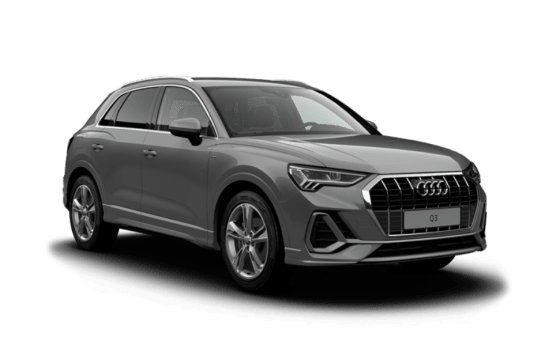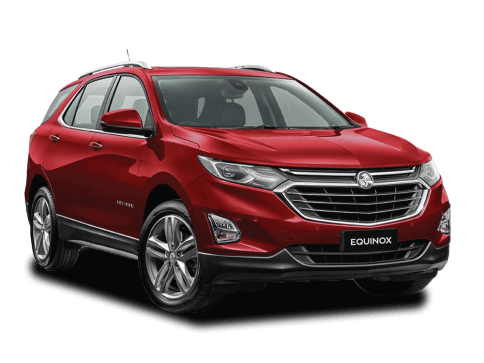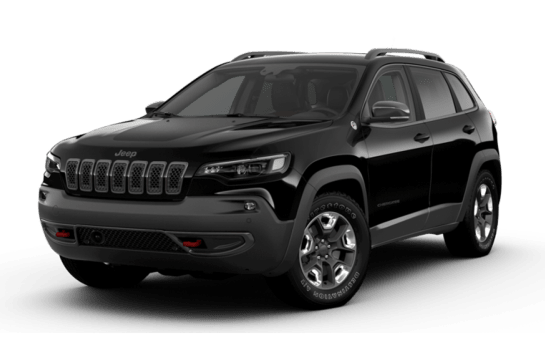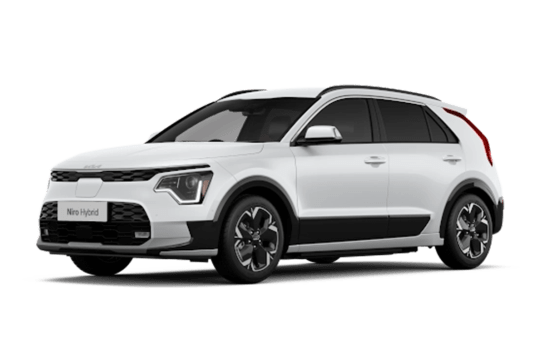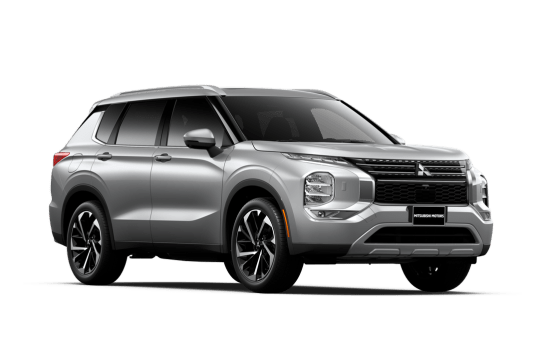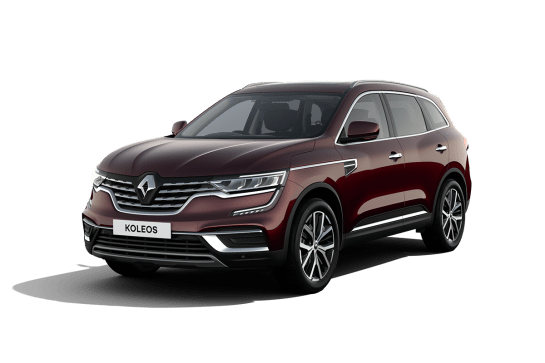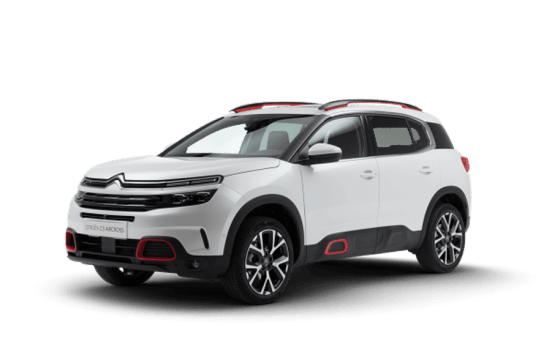
Citroen C5 Aircross VS Volvo XC40
Citroen C5 Aircross
Likes
- Cute and stylish design
- Spacious boot for this class
- Easy to park
Dislikes
- Driving is a bit hit or miss
- Technology will fluster an average user
- Expensive compared to rivals
Volvo XC40
Likes
- Cute kerb-side presence
- Decent cabin space for class
- Good driving range and energy consumption
Dislikes
- Ride comfort isn't there on long journeys
- Loud cabin at higher speeds
- Interior trims don't match grade level
Summary
Citroen C5 Aircross
Let’s be honest, medium SUVs are the bread and butter of the Aussie new car market and there are a lot of rivals to choose from.
Which is why the Citroen C5 Aircross Sport’s much-needed update is welcomed with open arms, especially since it’s the only model in the range.
It boasts more space than a lot of its rivals but it’s been let down in the past by a sparse safety sheet and older tech.
Read more about
The facelifted model sees tweaks to the design, safety and tech, making it more of a true competitor against the likes of the Kia Sportage, ever-popular Mazda CX-5 and practical Nissan X-Trail.
But are the changes enough for it to be considered as a family SUV? I’ve been testing it this week with my family of three to find out for you!
| Safety rating | |
|---|---|
| Engine Type | 1.6L turbo |
| Fuel Type | — |
| Fuel Efficiency | 5.7L/100km |
| Seating | 5 seats |
Volvo XC40
The XC40 Recharge Twin Motor is the flagship model for the segment leading small electric SUV from Volvo.
Well positioned in terms of price, specifications and driving range, it continues to prove itself a fierce rival to the Mercedes-Benz EQA, Lexus UX and newcomer BMW iX1.
Read more about
- 2025 Volvo XC40 and C40 Recharge electric cars get renamed to EX40 and EC40 for update as Swedish brand stays on target to be fully EV in Australia by 2026
- Forget Tesla! Why Volvo is the car brand with the most to gain from rising electric car sales
- Back to boxy! 2023 Volvo EM90 people mover revealed in full detail as Swedish brand enters the luxury van segment
But does it bring its A-game to every attribute buyers in the small electric SUV segment demand? In this review, we put it to test to find out.
| Safety rating | |
|---|---|
| Engine Type | — |
| Fuel Type | Electric |
| Fuel Efficiency | —L/100km |
| Seating | 5 seats |
Verdict
Citroen C5 Aircross7/10
So, what did my family think about the Citroen C5 Aircross Sport?
I love how it looks and its updated safety list. It’s fairly spacious inside and has a great boot space but it’s lacking a lot of family-orientated practicality in the back seat. The lack of individual storage and amenities is noticeable when you have a kid or two but even as an adult, not having a cupholder for your coffee/drink on a trip feels odd.
The multimedia system and reversing camera need to be improved, too. Overall, it will suit a small family which is out of the baby stage but can’t yet justify upgrading to a larger SUV. It gets a 6.5/10 from my family.
Volvo XC407.5/10
The Volvo XC40 Recharge Twin Motor is a cute small electric SUV that offers a decent specs list and a sweet urban driving experience. It’s not the nicest ride on a longer journey but it does have a decent range to be able to tackle one, if needed. I didn’t love the interior design but there’s lots the XC40 gets right.
Design
Citroen C5 Aircross
The facelifted model sees a sportier front with the grille redesigned to highlight the double chevron badge.
The bonnet curves around the badge, as do the two long LED strip lights that connect the headlights. The bonnet also sports new divots that give it a gruffer edge.
The wide profile at the rear and new three-pronged tail-lights create some interest.
The black plastic moulding that runs along the base of the car could look unfashionable on a lighter colour but on our blue paintwork, it looks good. As does the contrasting black roof!
The interior trims are finished in a combination of synthetic and Nappa leather but boast a two-tone colour which might not land with everyone. Particularly given the navy portions seem to be glittery in certain lights.
Sitting at 1859mm wide, 1695mm high and just 4500mm long, the overall exterior design is sporty but cute. It should appeal to those who want a nice-but-not-loud-looking car and something that is easy to park.
Volvo XC40
The XC40 Recharge sees some design changes from its fuel-based counterparts and that’s mainly seen in the front because you get a body-coloured panel instead of a standard grille. The 20-inch alloys feature a chunkier-looking design but the front still boasts the cool ‘Hammer of Thor’ headlights (which I'm rather fond of).
The interior is where the electric powertrain loses me because the fuel-based equivalent is so much nicer inside with its leather-accented upholstery and trims.
It's lovely that there has been a conscious effort to use recycled materials and non-leather upholstery throughout but I'm left with the strange-feeling that synthetic seats don’t reflect the grade or price level of this car.
Other than the cool-looking topography inserts on the dash and front doors and the 9.0-inch vertical multimedia system, it’s pleasant but a little basic in the cabin. Which is shame because the exterior is cute as hell.
Practicality
Citroen C5 Aircross
The interior is spacious for a medium SUV but the back seat knocks off some points for family practicality. So, let’s start in the back.
Despite there being plenty of headspace for my 168cm (5’6’’) height, the legroom is cosy behind my driving position.
Meaning a 0-4 rearward facing child seat will encroach on front passenger space. It’s probably best suited to a family which is out of the baby stages but it was cumbersome fitting my big harnessed-booster seat in there, too.
It has ISOFIX child seat mounts on the outboard rear seats and three top tethers but two seats will fit best. The floor is flat, which offers far more comfort for a middle seat passenger and I love how the seats can be individually shifted.
The amenities and storage in this row are sparse. You get directional air vents, reading lights, netted map pockets and shallow storage bins in the doors.
Siblings may squabble over the single USB-A port on a long road trip but more than that, there are no cupholders or drink bottle holders back there or even a centre armrest.
That said, the 182mm ground clearance made it an easy car for my six-year-old to get in and out of; plus, the stadium-like seating and wide windows meant he had an awesome view this week.
Now for the front. It has ample amenities, storage and tech. You get plenty of head- and legroom, plus with the panoramic sunroof the cabin manages to feel airy, too.
Individual storage is great with an extra deep middle console, glove box, two cupholders, bins in each door and two very handy utility trays situated near the toggle-type shifter.
Charging options are much better up front, too, and you can choose between a wireless charging pad, two USB-A ports and a 12-volt socket to charge your device.
It's super easy to connect to the wired Apple CarPlay and there’s wired Android Auto for those users.
The built-in satellite navigation is straightforward but that’s where the simplicity ends. I did not find the multimedia system or the digital instrument panel to be terribly intuitive to use and the touchscreen controls can be laggy.
I’m sure you could get used to it over time but I felt flustered.
For this size SUV, the boot space is great at 580L with all seats in use but you can bump it up to 1630L if you fold the back row.
The floor can be adjusted to make a level load space or dropped to give you greater depth for bulkier items and there is a temporary spare tyre underneath the floor.
There are luggage tie-down anchors, a cargo blind and I always like having a powered tailgate.
Volvo XC40
Front passengers enjoy the most space and I have plenty of head- and legroom up front. It’s a really easy car to get in and out of and the individual storage is very good for the class.
Front passengers enjoy a glove box, middle console with a removeable bin, two cupholders, utility tray and skinny drink bottle holders in the storage bins in the doors.
In the rear, passengers get map pockets on the backs of the front seats, two cupholders in the fold-down armrest and small storage bins in each door.
The synthetic leather-trimmed seats look neat and tidy but are very hard in the cushion, which makes them a tad uncomfortable on longer trips. The rear seats are much the same.
Charging options throughout the car are good with the front enjoying a 12-volt port, two USB-C sockets and a wireless charging pad to choose from. The rear also gets two USB-C ports and there's another 12-volt outlet in the boot.
The rest of the technology is easy to use once you spend some time with it. The 9.0-inch touchscreen multimedia system features built-in Google Maps, Assistant and Play Store apps, as well as, YouTube.
The 12.0-inch digital instrument panel isn’t customisable but I like the way it pulls through the satellite navigation screen and directions.
Because of the dual-motor powertrain, your boot capacity drops to 419L from 452L for the single-motor variant. It is large enough for my grocery shop and random errands and you can fold the floor up to create a deep storage well for additional space. Fold the 60/40 split-folding rear seat and available space expands to 1295 litres.
I don’t like the hardened cargo liner, it feels and looks a little cheap, but I do like the powered tailgate. There’s also handy frunk storage of 31L, which is perfectly sized for any charging cables you will have.
Price and features
Citroen C5 Aircross
There is only one model for the C5 Aircross Sport and it will set you back $54,990, before on-road costs.
That prices it as the most expensive compared to its rivals with the Mazda CX-5 GT SP ($51,810) coming in closest but the Nissan X-Trail ST-L ($46,790) and the Kia Sportage SX+ ($41,850) are even more affordable.
The only included paint colours are 'Polar White' and 'Nera Black'. Our model’s 'Eclipse Blue' will add on $690.
However, the C5’s price tag doesn’t feel too cheeky because of the feature-heavy specification, including heated front seats, electric driver’s seat with massage function, a panoramic sunroof and a mix of premium Nappa leather and synthetic leather interior trim.
You also get a powered tailgate, rear privacy glass tinting, full LED lights on the exterior, individually sliding seats on the back row and black 19-inch alloy wheels.
The technology has been upgraded with the dashboard being headlined by a 10-inch touchscreen multimedia system and a 12.3-inch digital instrument panel.
Built-in satellite navigation, as well as wired Apple CarPlay and Android Auto are also included as standard equipment.
On top of that, the safety list has been significantly improved, but more on that later.
Volvo XC40
There are two powertrain options in the XC40 family, a mild-hybrid or pure electric. The latter gets two variants and we’re in the top-spec Recharge Twin Motor, which is priced from $85,990, before on-road costs. This positions it in the middle of its nearest rivals but in its family line-up it’s a big $23K jump from its Ultimate B4 AWD combustion equivalent.
The standard features list for the XC40 is robust and there are some great premium features, like the electrically-adjustable and heated front seats with extendable under-thigh support and electric lumbar control.
A panoramic sunroof makes the cabin feel light and airy, the rear outboard seats have heat functions and the driver enjoys a heated steering wheel. You also get a premium 13-speaker Harman Kardon sound system in the Twin Motor.
Other premium features include pre-entry and after-park climate control (perfect for those super-hot days) and a hands-free powered tailgate.
Technology highlights include a complimentary four-year subscription for the built-in Google Assistant, Google Maps and Google Play Store which are accessed via the portrait-style 9.0-inch multimedia touchscreen.
There's also access to apps like YouTube, which delighted my seven-year old and would be handy on any charging stints for some diversion. It's surprising there isn't wireless functionality for Apple CarPlay and Android Auto but they can be hooked up via cable.
Under the bonnet
Citroen C5 Aircross
The C5 Aircross Sport has a 1.6-litre, four-cylinder turbo-petrol engine with a maximum power output of 133kW and 250Nm of torque. It’s not super grunty but there’s plenty here to keep you up to speed on the open road.
It is a front-wheel drive and has an eight-speed auto transmission but the gear changes can feel a bit jerky at lower speeds.
Volvo XC40
The XC40 Recharge Twin Motor features two electric motors which are powered by a large 82kWh lithium-ion battery and produce a combined power output of 300kW and 670Nm of torque.
Which is downright fun because it can do a 0-100km/h sprint in just 4.8-seconds!
Efficiency
Citroen C5 Aircross
Ah, this is where it earns back some points!
I was very impressed by the efficiency of this because the official combined cycle fuel figure is 5.7L/100km and my real-world usage came to 6.2L! That’s fantastic for this sized SUV and for a turbo.
With a fuel tank of 53L and based on the combined fuel figure, you should be able to get a driving range of around 930km, which is good for those families who like to do road trips.
Volvo XC40
The official energy consumption figure is 19kWh/100km and I averaged 19.2kWh over a fair mix of urban and open-road driving. The energy consumption isn't bad but some rivals do sit closer to that 16.5kWh mark.
The official driving range is up to 485km for this model but I only ever saw a top range of 410km. That's not terribly surprising given I wasn't shy with the power use but there was a little bit of range anxiety on longer trips.
The XC40 Recharge Twin Motor has a Type 2 CCS charging port which means you can benefit from faster charging speeds. On an 11kW AC charger you can go from 0-100 per cent in eight hours but on a standard three-pin house plug socket expect that wait time to go up significantly.
On a DC fast charger expect to go from 10-80 per cent in as little as 33-minutes.
Driving
Citroen C5 Aircross
Despite its city-friendly size, the C5 Aircross Sport is just as happy cruising on the open-road as it is in an urban environment.
The ride is smooth enough once you get up to a steady speed but the suspension can feel harsh on a bumpy road.
Also, the auto stop-start function can make it feel sluggish to respond, so I disabled this on most trips.
There is plenty of power so you'll feel confident overtaking or getting up to speed on the open road. However, you have to be a little more aggressive with the accelerator when you’re hitting hills.
The steering can, at times, feel vague when you’re at lower speeds but is otherwise responsive.
The cabin space is quiet and nice to be in on the highway and you’ll be able to chat with your passengers with ease.
What I like most about this though is the visibility – the windows are large and I feel like I have a clear view most of the time, which isn’t always the case in an SUV.
Parking this is a cinch with entry to tight car parks helped by a 10.7m turning circle!
However, the 180-degree view camera isn’t great and near hopeless at night time. A clearer image would be welcome but front and rear parking sensors ease the annoyance.
Volvo XC40
Like the Polestar 2 there’s no ignition button on the XC40. You shift into drive to ‘turn on’ and after you park, you simply get out to turn it off. It takes a little while to get used to but it’s a cool feature.
The twin motors deliver a hefty kick and you never worry about not having ‘enough power’. In the city it’s zippy but on the open-road you also feel comfortable getting up to speed or overtaking because the power distribution is so well-balanced because it’s an AWD.
I customised my steering wheel ‘feel’ to firm and it makes the handling crisp and direct. You feel like you’re in total control whenever you have to tackle be it tight streets or small car parks.
The blind-spot visibility is compromised by how wide the B and C-pillars are and I find that I'm relying a lot more on the blind-spot monitoring system to compensate.
The XC40 loses a few points for me in terms of ride comfort. As mentioned, the seats aren't terribly comfortable but the suspension is hard enough that you notice every bump, as well.
Road noise is also quite pronounced and it doesn’t sound refined when you drive at higher speeds, which is a shame. The flip-side, though, is that you don’t notice those things as much on short, urban trips.
The standard regen braking isn’t customisable and you don’t notice it until you switch over to a 'one-pedal' function. I found this function uncomfortable to use as it’s very aggressive and creates a jerky driving experience.
Because of its 4440mm length and tiny 11m turning circle, you won’t struggle in a car park! The 360-degree view camera system and front and rear parking sensors make it easy to navigate a tight spot.
This is a joy to park. It’s so easy.
Safety
Citroen C5 Aircross
The updated safety list is most welcomed, especially on a family SUV.
The C5 Aircross Sport has the following as standard - daytime running lights, forward collision alert, lane keeping aid, lane departure alert, blind-spot monitoring, rear cross-traffic alert, intelligent seat belt reminders, traffic sign recognition, 180-degree view reversing camera, front and rear parking sensors and adaptive cruise control with stop and go function.
Special mention for the new fatigue detection alert. When it triggers it doesn’t stop sounding until both of the driver's hands are detected on the steering wheel.
The autonomous emergency braking with car, pedestrian and cyclist detection is operational from 10 – 80km/h (5.0 -140km/h for car detection), however the pedestrian and cyclist functions are only detectable in the day time. It’s usual to see it operational at night, as well.
Despite the new safety items, it still only has six airbags, which includes curtain airbags covering both rows but that’s pretty low for a family car nowadays.
It was awarded four from a maximum five-star ANCAP safety rating back in 2019 but didn’t have all of the new items at the time of testing.
Volvo XC40
The XC40 has a long safety features list but a standout is the Volvo designed 'Side Impact Protection System' (SIPS) that reinforces the car's steel framework at the sides and disperses energy in a side collision.
Other standard features include full LED external lights, daytime running lights, adaptive cruise control, rear cross-traffic alert, blind-spot monitoring, driver attention alert, forward collision warning, lane departure alert, lane keeping aid, intelligent seatbelt reminders, traffic sign recognition, 360-degree camera system, front and rear parking sensors.
The XC40 has a maximum five-star ANCAP safety rating from testing done in 2018. It has seven airbags, including a driver's knee bag and features high individual scoring for adult and child occupant protection at 97 per cent and 84 per cent, respectively.
The XC40 has AEB with car, pedestrian and cyclist detection and is operational from 4.0-210km/h. It's usual to see that top speed sit closer to 180km/h, so that's very good.
A cool feature for any parents out there is the second key which you can program to limit stereo volume levels and set a maximum speed allowance. It's even coloured bright orange so there are no chances of a sneaky switcheroo!
There are ISOFIX child-seat mounts on the rear outboard seats and three top-tether anchor points for any families out there but two seats will fit best.
Ownership
Citroen C5 Aircross
The on-going costs are super-reasonable on the C5 Aircross Sport, with a five-year/unlimited km warranty included.
You can also choose to pre-purchase a three- or five-year capped-priced servicing plan, both significantly cheaper than the pay-as-you-go option.
On the three-year plan, services are $1100 or an annual average of $366.
It’s a flat $2000 for the five-year plan, (averaging just $400 per service), which is very competitive for the class.
Servicing intervals are every 12 months or 15,000km, whichever occurs first.
The Aircross also comes with a five-year roadside assistance plan that is offered through Digicall Assist, for added peace-of-mind.
Volvo XC40
The ongoing costs are pretty solid with the XC40 coming with a usual five-year/ unlimited warranty term but the drive battery is covered for eight years/160,000km.
You can pre-purchase a five-year/150,000km servicing program for a flat $3000 or an average of $600 per service, which is a bit expensive for the class. Servicing intervals are great at every two-years or 30,000km, whichever occurs first.
You get complimentary roadside assistance for five-years through Assist Australia and if you meet certain criteria, you can extend that by a further three years, which is handy.



